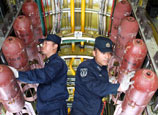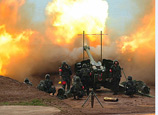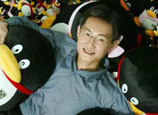
Thanks to the 2013 Chinese Training Program for EU Employees, some 30 officials got the opportunity to know more about China.
Launched by the Hanban (Confucius Institute Headquarters) and organized by Beijing Foreign Studies University, the program, which lasts from July 20-28, is the first such cultural exchange platform in China designed for European Union employees, said Jing Wei, deputy director-general of Hanban.
The 30 EU employees, selected from more than 50 who applied for the program, are from 16 directorate generals of the EU including environment, energy, trade, enterprises and industry, and development and cooperation.
A series of tailored lectures are given to them by teachers from the Beijing Foreign Studies University, including lectures on China's economy, education, culture, and science and technology.
In a two-hour lecture, He Rong, an associate professor of the International Business School of the university, introduced the development and growth of China's economy, trade and foreign direct investment.
She also mentioned China's policy on economy and trade, as well as China's 12th Five-Year Plan (2011-15).
She said the EU employees are different from other international students she taught in the past and she chose these topics especially for them.
"Compared with ordinary international students, the EU employees know more about China's history and economy, and they are more interested in China's policies and plans," said He.
Christer Hammarlund said the lecture given by Chinese people about their own country is interesting and informative.
"I had read about the history of China before coming here and the lecture on China's economy totally met my expectations," he said.
Gerald Cultot said he knew about the history and the development of China's economy before the lecture. But he still wants to know how China achieved the ability to keep sustainable growth, and how China will be addressing the challenges it faces.
"I got some of the answers to my questions," he said after the lecture. "The lecture is really good, but we have no more than two hours."

















 Migrant children’s dream of stage
Migrant children’s dream of stage


![]()
